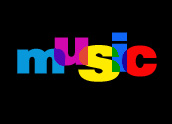
Two of the biggest-selling rock bands of the 1970s have filed suit against their onetime label saying the royalties reaching them from digitally downloaded versions of their songs are too low.
The Allman Brothers Band and Cheap Trick filed suit against Sony BMG in U.S. District Court in New York, claiming that a higher percentage of royalties from digital music should go to the artists themselves.
Licensing vs. Sales
At issue is how much of the cost to download a song — typically around 99 US cents for a single track from major sites such as iTunes — should go to the artists.
The two bands claim that Sony is violating a contract agreement made with them and say digital music should be treated as licensing rather than sales, which would mean more royalties for artists — they are seeking half the net licensing revenues from each song, or about 30 cents for each download.
Currently, the two bands see 4.5 cents, or less than 5 percent, of the download price for a song. That includes deductions, the suit contends, that Sony is making for “packaging costs.”
Industry estimates peg the label’s take at about 70 percent of the download price, with Apple or other download-store managers getting a small cut along with the artists.
Sony has not commented on the suit, but the case could become more than a curiosity for the band’s fans as it sheds new light not only on how the fees for downloads are divvied up but also how much those songs actually cost.
Several labels have already begun to pressure Apple to raise prices at its iTunes Music Store, saying the 99 cents price tag is too low to cover all the costs associated with producing music and that the price is cannibalizing sales of compact discs.
Gonna Raise Hell?
Both Cheap Trick and the Allman Brothers Band had their heyday in the late 1970s, selling out massive arenas and selling millions of records worldwide during lengthy careers.
Though the bands continue to perform reunion-style shows today, their original contracts date from a time when music was most commonly sold on vinyl records, with pure digital music that never makes it into physical form not yet conceived.
In fact, the bands say their contracts cover only the distribution of “physical phonorecords” and say that because no such physical format exists in the digital space, the terms of the royalty payments should reflect the new reality.
The two bands are seeking to have the suit deemed a class action, which would extend it to cover all artists signed by Sony between 1962 and 2002 — potentially, thousands of artists responsible for millions of downloads in recent years.
If the class is certified, the case could become a flashpoint for how digital revenues are defined and divided, with iTunes, Napster and other distributors potentially caught in the cross-fire between artists and their record labels. With iTunes recently announcing it had surpassed 1 billion worldwide downloads since its launch, the potential monetary fallout from the decision — both in terms of past payouts and changes in the economics of the business going forward — could be significant.
Midnight Riders
It is widely believed that record labels will seek to change the terms of their deals with Apple and other online music distributors as contracts currently in place begin to expire.
Intellectual property attorneys said the case may be significant even if it doesn’t make changes in who owns the rights to sell or license music online. If the bands are able to convince a court that existing contracts don’t properly cover digital music, there could be considerable fallout.
Intellectual property attorney Steven Frank of Goodwin Procter said the case doesn’t appear to be about whether labels have a right to sell the music digitally. “It’s all about the terms and the cut that each party is getting,” Frank said. “That’s an issue that’s not going to be settled with a single case.”






















































Social Media
See all Social Media